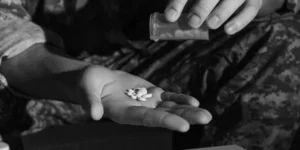FDA's Oversight Shapes Our Trust In Food And Health Products
How does the FDA regulate the safety and efficacy of products related to addiction in the context of food and health safety? Our counsellors are here to help you today.
FREE ASSESSMENT082 747 3422The Food and Drug Administration (FDA) is a US federal organisation that controls the manufacturing of new foods and health products.
The FDA is a regulatory agency within the United States government. Its primary role is to ensure the safety and efficacy of various products, including medications and medical devices. When it comes to addiction treatment, the FDA plays a important part in assessing and approving medications used in the recovery process.
One interesting fact about the FDA is that it was established back in 1906 making it one of the oldest consumer protection agencies in the United States. Over the years, the FDA has evolved to meet the changing needs and challenges in the healthcare industry.
In the context of addiction treatment, the FDA closely monitors the development and approval of medications that aid in recovery. For instance, medications like methadone, buprenorphine and naltrexone, commonly used in opioid addiction treatment, have all been approved by the FDA.
The FDA employs a rigorous evaluation process for medications seeking approval. This involves extensive clinical trials, a review of scientific data and thorough assessments of potential risks and benefits. By ensuring that medications meet certain safety and efficacy standards, the FDA helps protect the well-being of individuals seeking treatment for addiction.
It is key to note that FDA-approved medications are typically used in conjunction with counselling and other forms of therapy. The FDA does not provide treatment itself but focuses on assessing the safety and effectiveness of the medications used in addiction recovery.
How does the FDA regulate the safety and efficacy of products related to addiction in the context of food and health safety? Get help from qualified counsellors.FDA's Oversight Shapes Our Trust In Food And Health Products

MU agonists are drugs that bind to and stimulate the m1 and m2 brain receptor.…

Borderline personality disorder can be defined as a mental illness that causes long term damage…

Narcotics Anonymous is not a miracle, not a lecture series, and not a place where…
What key factors make the adult addiction therapy programs in Cape Town's Southern Suburbs appealing to international patients seeking quality care at lower costs?
What are the key components that differentiate various addiction recovery programs, such as the 12-step approach, in helping individuals achieve long-term sobriety?
Inpatient Rehab
Rehab care is a good option if you are at risk of experiencing strong withdrawal symptoms when you try stop a substance. This option would also be recommended if you have experienced recurrent relapses or if you have tried a less-intensive treatment without success.
Outpatient
If you're committed to your sobriety but cannot take a break from your daily duties for an inpatient program. Outpatient rehab treatment might suit you well if you are looking for a less restricted format for addiction treatment or simply need help with mental health.
Therapy
Therapy can be good step towards healing and self-discovery. If you need support without disrupting your routine, therapy offers a flexible solution for anyone wishing to enhance their mental well-being or work through personal issues in a supportive, confidential environment.
Mental Health
Are you having persistent feelings of being swamped, sad or have sudden surges of anger or intense emotional outbursts? These are warning signs of unresolved trauma mental health. A simple assesment by a mental health expert could provide valuable insights into your recovery.
Is My Loved One Addicted?
Your responses are private and not stored.
It’s Professional.
Clinically grounded
Clear, practical guides on addiction and recovery, based on recognised treatment principles and South African experience.
Therapy for addictionIt’s Affordable.
Straight talk on costs
We unpack typical fees, medical-aid issues, and funding options so you can compare treatment choices without sales pressure.
Paying for treatmentIt’s Convenient.
On your terms
Short explainers, checklists, and FAQs you can read, save, and share in your own time, from any device.
What to expect in rehabIt’s Effective.
Better decisions
We focus on evidence-based guidance and honest discussion of risks, relapse, and family impact to support long-term recovery.
Evidence-based
















